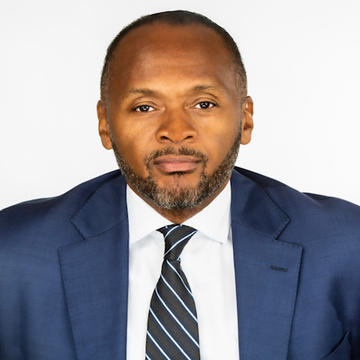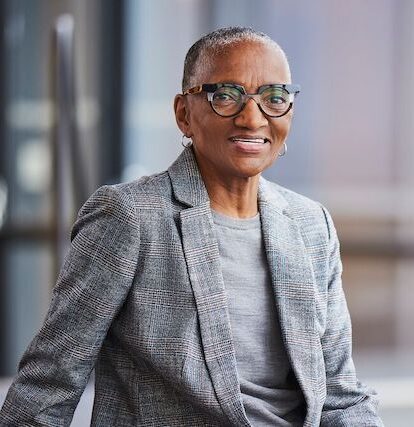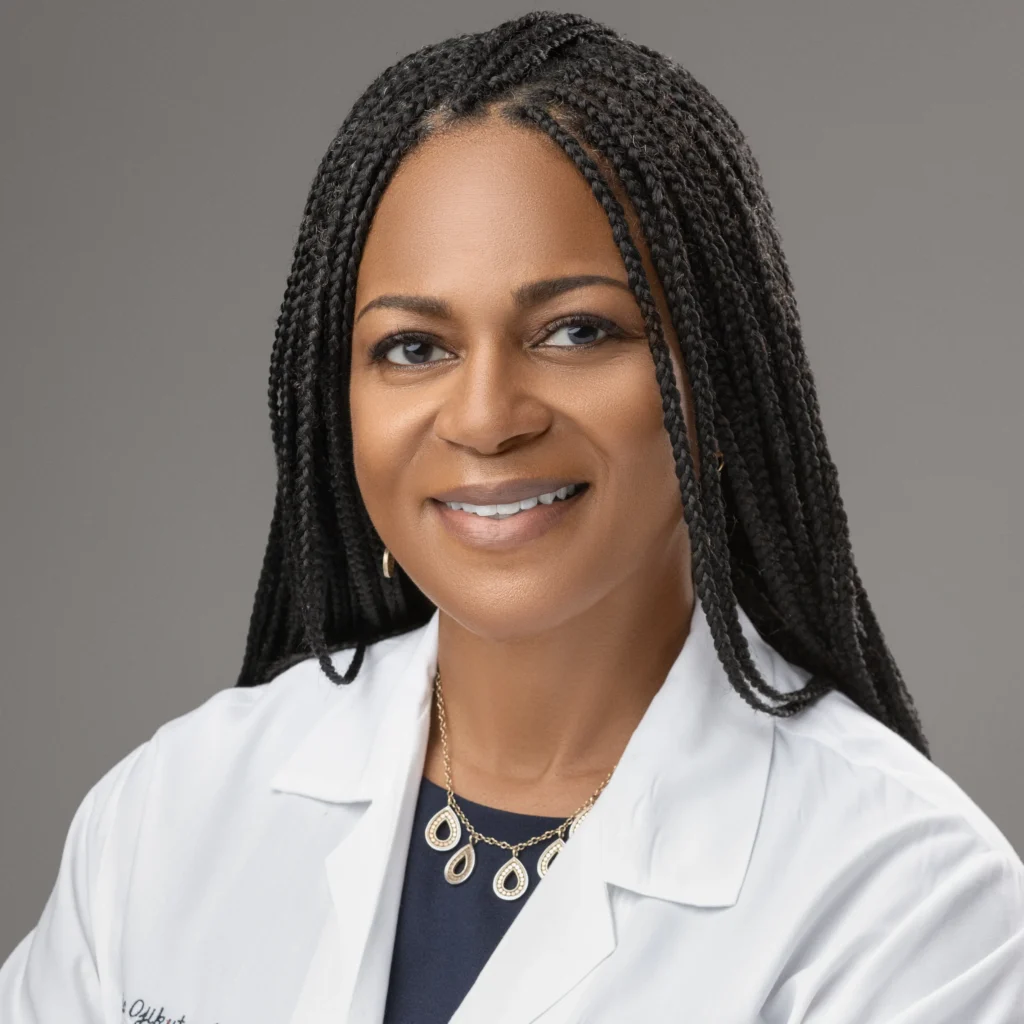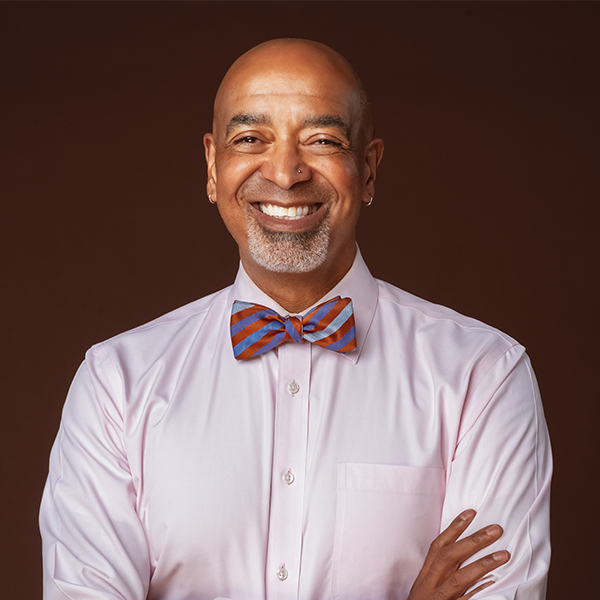Videos
Speakers

Michael Curry
President & CEO, Massachusetts League of Community Health Centers
Michael Curry, Esq. is President & CEO of the Massachusetts League of Community Health Centers (the Mass League), which represents 50 health centers, serving over one million patients out of over 300 practice sites. He was named: one of the Boston Business Journal’s Power 50 Movement Makers of 2024, 2023 and 2022; one of Boston’s Most Influential Men of Color by GetKonnected!; one of Boston Magazine’s 150 Most Influential Bostonians in 2024 and 2023; and a Bostonian of the Year in 2021 (along with his member health centers) by The Boston Globe and Boston Magazine.
He brings over 35 years of experience and results in civil rights advocacy, health reform and health equity. He is a current, nationally elected (4-term) member of the National NAACP’s Board of Directors (2014-present) and the Immediate Past President of the Boston Branch of the NAACP (2011-2016). Attorney Curry is also an Adjunct Professor at both New England Law Boston teaching Diversity and Inclusion in the Legal Profession and Suffolk University’s Moakley Center and Sawyer School of Management teaching a health care management and policy course.
In just over three years since Michael assumed the role of CEO at the Mass League, the staff have more than doubled, the organization secured an over $360 million contract with the state to administer the Massachusetts Loan Repayment Program (MA Repay), and he launched the Institute for Health Equity Research, Evaluation & Policy (IHE) after raising just under $8 million dollars. The IHE is focused on conducting “emancipatory research” and ensuring patients, community health and communities are central to developing new knowledge in health. In addition, Dr. Curry is the co-Chair of the Harvard School of Public Health’s (Harvard Catalyst’s) Community Coalition for Equity in Research (CCER), aimed at supporting bi-directional community engagement to improve the relevance, quality, and impact of research.
In 2022, Dr. Curry co-founded the Health Equity Compact in Massachusetts, a collective of over 80 c-suite leaders of color in health care, insurance, philanthropy, government and academia with a mission to realize bold statewide policy and institutional practice changes that center racial justice and health equity. Early wins include filing an omnibus health equity bill with the Massachusetts Legislature; working with the Blue Cross Blue Shield of Massachusetts Foundation to produce a ground-breaking report on the Cost of Inequity ($5.9 billion annually); hosting an annual Health Equity Trends Summit that draws over 1,000 leaders and advocates for a day-long discussion on solutions.
Dr. Curry earned a Bachelor of Arts from Macalester College in St. Paul, Minnesota, and a Doctor of Jurisprudence from New England School of Law, and later graduated from the inaugural class of the Executive Leadership Council’s (ELC’s) Pipeline to Leadership Program. He also has an honorary degree from William James college, a Doctorate in Business Administration from Curry College and Healthcare Administration from Labouré College.
He also serves on numerous boards/commissions/committees, including: Embrace Boston; Eastern Bank’s Board of Advisors; public broadcasting GBH’s Board of Advisors; Alliance for Business Leadership (ABL); Harvard & Legacy of Slavery Initiative’s External Advisory Committee; Massachusetts Coalition for Serious Illness Care (MCSIC); The New England Council (NEC); Federal Reserve Bank of Boston’s Community Development Advisory Council (CDAC); Health Policy Commission’s Advisory Board; and RIZE Massachusetts, dedicated to funding solutions to end the overdose crisis.
He is a frequent Political Commentator on WBUR’s Radio Boston, Morning Edition and Week in Review, Boston Public Radio WGBH with Jim Braude and Margery Eagan, WGBH’s Greater Boston, and New England Cable News, as well as frequently requested to provide reactions to breaking news, presidential and mayoral debates, and state of the union/city addresses.
Michael has received numerous awards, most recently: the 2024 Boston Municipal Research Bureau Henry Shattuck City Champion Award; the Disability Policy Center (DPC) 2024 Mary Lou Maloney Award; the Urban League of Eastern Massachusetts’ Melvin H. King Community Leadership Award; the National Association of Community Health Centers’ 2024 Norton Wilson State/Regional Leadership Award; and the National NAACP’s 2022 William Montague Cobb Award for “special achievement in healthcare, social justice, and policy advocacy”.

Trinidad Jackson
Assistant Professor, Assistant Dean for Culture and Liberation, University of Louisville School of Public Health & Information Sciences
Dr. Trinidad Jackson is a proud son of St. Louis, MO, and has been blessed to call many places home. In November 2014, the fight for collective liberation summoned Dr. Jackson’s mind, body, and spirit back to St. Louis as a disruptor and social movement scientist. The Ferguson Uprising—sparked by Ferguson Police Department’s murder of Michael Brown—provided a landscape that carried his critical social action research from St. Louis to Louisville. Upon returning to Louisville in 2015, he led community-based participatory research that explored power, oppression, and the need for critical consciousness and action through lenses of justice, safety, hope, and racial equity. This engagement and critical community-generated data were foundations for his team’s ultimate CDC Center of Excellence designation for violence prevention research. Their approach deviated from traditional violence prevention by hiring youth to engage in teaching, learning, and co-leading efforts addressing structural violence and liberation. During this same time period, Dr. Jackson was the lead evaluator for Pivot to Peace—a collaborative effort across Louisville that recruited gunshot and stab wound victims from their hospital beds to engage in communal healing and community building. His work has been disseminated at local, national, and international levels through academic publications, presentations, and art.
Dr. Jackson has engaged in multiple fellowships with organizations focused on sociopolitical transformation including Kentuckians for the Commonwealth and BMe, an organization working to transform Black communities locally and nationally. In July 2020—during racial justice uprisings across the country, he presented to Louisville Metro Council, urging it to declare racism a public health crisis. He felt it critical to catalyze government responsibility for a social phenomenon that kills so many people daily. In December 2020, an executive order addressing this crisis was declared, but the city has monumental gains to make before racially minoritized people are not suffering from premature death rooted in legacies of white supremacy.
He is a board member for the Minority Mental Health Project and has volunteered on numerous committees for entities including the University of Louisville, Louisville Metro Government, Jefferson County Public Schools, Louisville Urban League, and the Association of Schools and Programs of Public Health. In 2021, he was selected as the inaugural Assistant Dean for Culture and Liberation at the University of Louisville School of Public Health and Information Sciences (SPHIS) and also appointed as Senior Advisor to the Commissioner within Kentucky’s Cabinet for Health and Family Services to address policies, systems, and environments in ways that prioritize race, equity, and public health. In July 2022, Dr. Jackson earned an additional promotion to Assistant Professor at SPHIS.
He has been presented with the Center for Women and Families’ Nolen Allen Man of Distinction and the Outstanding Student/Employee of the Year awards for his professional and community-related efforts. He also received the Vera Pater Award from the Global Alliance for Behavioral Health and Social Justice for “significant contributions to the social, education, physical, or psychological well-being of persons of color, thereby promoting their empowerment and ameliorating disadvantage from oppression and its effects.” Dr. Jackson was inducted into Kentucky State University’s 2021 Forty under Forty class, and he was honored with a proclamation for Trinidad Jackson Day (June 26) in the city of Louisville. In August 2024, the Kentuckians For The Commonwealth presented him with the Bennie Massey Organizing Award for dedication and leadership that has helped to build beloved community, dismantle racism and oppression, and transform the future of Kentucky. In particular, the organization noted the critical roles Dr. Jackson played in leading teams across the state in education and advocacy efforts related to anti-DEI legislation that ultimately failed to pass into law
In 2022, he earned a PhD in Public Health Sciences from the University of Louisville. Dr. Jackson graduated receiving both a Graduate Dean’s Citation and the Guy Stevenson Award—the highest honor given to one graduating student—for outstanding contributions in scholarship, leadership, teaching, and service. He was also the commencement speaker for the doctoral hooding and graduation ceremony.

Thea James
Co-Executive Director of Health Equity Accelerator, Vice President of Mission & Associate Chief Medical Officer, Boston Medical Center Health System
Thea James, MD, MPH, MBA, is Vice President of Mission, Associate Chief Medical Officer and Co-Executive Director of the Health Equity Accelerator at Boston Medical Center. She is Professor of Emergency Medicine and Director of the Violence Intervention Advocacy Program at BMC. Dr. James is a founding member of the Health Alliance for Violence Intervention (the HAVI). In 2011 she was appointed to Attorney General Eric Holder’s National Task Force on Children Exposed to Violence.
As vice president of mission, Dr. James partners with caregivers throughout BMC and coordinates BMC’s relationships and strategic alliances with a wide range of local, state, and national organizations and partners across sectors, to meet the full spectrum of essentials that enables patients and communities to thrive. The intentionality is to foster a strategic ecosystem of growth, innovation, transformation, community collaboration, and effective models of care that are rooted in equity, clinical excellence and economic justice.
Dr. James served on the Massachusetts Board of Registration in Medicine 2009-2012, where she served as chair of the Licensing Committee. She is 2008 awardee of Boston Public Health Commission’s Mulligan Award for public service, and a 2012 recipient of the Suffolk County District Attorney’s Role Model Award. She received The Boston Business Journal Healthcare Hero award in 2012 &2015. She was 2014 recipient of the Schwartz Center Compassionate Care Award. The Boston Chamber of commerce awarded Dr. James with the Pinnacle Award in 2015, which honors women in business and the professions. In 2020 Dr. James received the American College of Emergency Medicine Lifetime Achievement Award. Also, in 2020, The History Project presented her with a History Maker Award. Dr. James recently received the inaugural 2020 Thea James Social Emergency Medicine Award from the American College of Emergency Physicians.
Dr. James’ passion is in Public Health both domestically and globally. She was a Supervising Medical Officer on the Boston Disaster Medical Assistance Team (MA-1 DMAT), under the Department of Health and Human Services. She has deployed to post 9/11 in NYC, Hurricane Katrina in New Orleans in 2005, Bam, Iran after the 2003 earthquake, and Port-Au-Prince Haiti after the earthquake of 2010. Dr. James traveled to Haiti with MA-1 DMAT one day after the 2010 earthquake.
A graduate of Georgetown University School of Medicine, James trained in Emergency Medicine at Boston City Hospital, where she was a chief resident.

Bisola Ojikutu
Commissioner of Public Health and Executive Director, Boston Public Health Commission
Bisola Ojikutu MD MPH is a nationally recognized physician leader, health equity researcher, community advocate and expert in the prevention, care, and treatment of infectious diseases. Dr. Ojikutu was appointed Executive Director of the Boston Public Health Commission (BPHC) in July 2021.
As Executive Director of the BPHC, the City’s health department and Commissioner of Public Health for the City of Boston, Dr. Ojikutu manages a budget of $180M and leads more than 1,300 employees working in 6 bureaus and more than 40 programs. Dr. Ojikutu is a key advisor to Boston’s Mayor on health issues and builds innovative partnerships across city departments and within Boston’s communities to positively impact the health of all city residents. Among other public health priorities, she is committed to addressing racism as a public health crisis and advancing health equity.
Dr. Ojikutu is an Associate Professor of Medicine at Harvard Medical School and a faculty member within the Division of Global Health Equity at Brigham and Women’s Hospital. She also holds an appointment within the Infectious Disease Division at Massachusetts General Hospital and is an adjunct faculty member at The Fenway Institute. She has led research and developed programs focused on increasing access to health care among marginalized populations funded by the National Institutes of Health, the Patient Centered Outcomes Research Institute and the Health Resources and Services Administration (HIV/AIDS Bureau). Most recently, Dr. Ojikutu served as Director of the Community Engaged Research Program and the Associate Director of the Bio-Behavioral and Community Science Core for the Harvard Center for AIDS Research. She is widely published in peer-reviewed journals and is an Associate Editor for the American Journal of Public Health (AJPH). She is also a co-editor of two comprehensive textbooks detailing strategies to address the ongoing HIV epidemic with Black and Latinx communities, HIV in US Communities of Color. Among other awards, she was named one of the 100 Most Influential Bostonians by Boston Magazine in 2022.

Craig Andrade
Associate Dean for Practice, Boston University School of Public Health
Craig Andrade is Associate Dean of Practice and Director of the Activist Lab at Boston University’s School of Public Health (SPH) where he is serves to catalyze and encourage SPH’s public health practice portfolio locally and globally among all members of the school community, including faculty, staff, students, alumni, and community partners. He is also a member of the Dean’s Cabinet and the Governing Council and chairs the school’s permanent practice committee.
Previously Dr. Andrade was the Director of the Bureau of Family Health & Nutrition (BFHN) at the Massachusetts Department of Public Health (DPH). BFHN’s programs include Early Intervention (EI), Pregnancy, Infancy and Early Childhood, Children and Youth with Special Health Needs, Women, Infants and Children (WIC) Nutrition Program, Home Visiting, Title V Maternal and Child Health Block Grant, Breastfeeding Initiative, Birth Defects Surveillance, Universal Newborn Hearing Screening Program, the Office of Data Translation and Birth Defects Research and Prevention. He also served as Director of the Division of Health Access at DPH, helped found the Racial Equity Leadership Team and Cross-Department Racial Equity Collaborative at DPH and was Associate Dean of Health and Wellness and Director of Student Health Services at Wheaton College in Norton, MA.
He served as critical care, public health and ward nurse at Boston Medical Center; nurse manager and head athletic trainer at Buckingham Browne & Nichols School in Cambridge, MA; and was owner/operator of Active Health, a private health and fitness company. Craig is a registered nurse, athletic trainer, licensed massage therapist and strength and condition specialist with masters and doctoral degrees’ in public health from Boston University. His research interests include behavioral risk management and resilience-building among children, adolescents and young adults.
